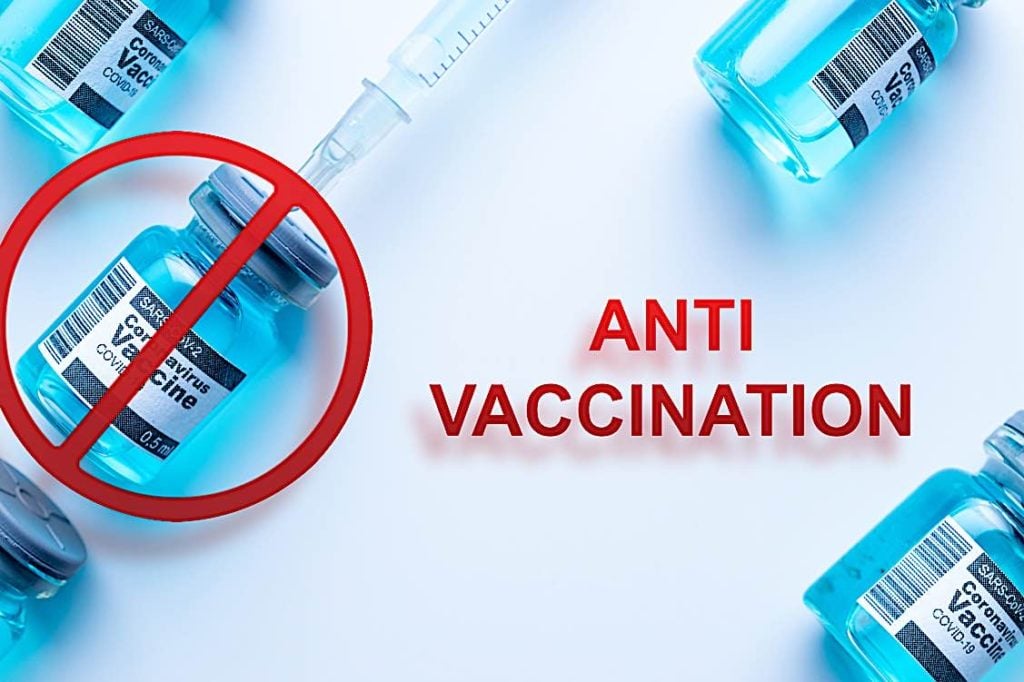
Covid-19 Vaccinations: Can Employers Mandate Employees In Canada? HR Management Series
A recent poll indicated that 25 percent of the Canadian population will refuse Covid-19 vaccination.[4] A CBC poll finds similar numbers for Canada, with 20 percent hesitant and another 14 percent refusing entirely.[5]
In the face of these numbers, can employers ask employees to prove vaccination before returning to work? Can they screen new potential employees on the basis of vaccination, in the same way, for example, they might use a criminal record check? Can they refuse employment for someone who declines to vaccinate? What can HR Managers and HR Management companies do to mitigate risks? [See Employer Action List section for answers.]
Disclaimer: Pivotal HR Solutions researched this topic and offer suggestions, but advise employers to either work with their HR Management team or legal teams to ensure the right action plan. [See Action Plan below.]

Three Areas of Law
HR Managers and employers must consider three types of law before trying to mandate vaccination: Public Health Law, Occupational Health and Safety Law, and Privacy Legislation. From the point of view of law, Privacy Legislation is the biggest issue when it comes to refusal to vaccinate issues. By way of summary:
- Nothing in Public Health Law compels citizens to vaccinate.
- Occupational Health and Safety Law, on the other hand, imposes a higher standard on employers. Employers can be liable for the spread of COVID-19 to employees or even clients, visitors, service providers, and customers. For this reason, most employers will seek proof of vaccination.
- Privacy Legislation represents the biggest issue for employers who plan to mandate vaccination for COVID-19. There is a risk of discrimination under Privacy Legislation. To ensure compliance — unless you implement a strict honor system — HR Managers and employers will be required to ask for proof of vaccination. Since this is medical information, considered private it is difficult to mandate proof of vaccination. Lawyers, however, have differing opinions on this, as discussed below.
Covid-19 Vaccination Compliance is a Grey Area in Law
Mandating Covid-19 vaccinations can be considered an important safeguard In order to protect the employees, and the business itself — including any person or client/customer who enters. Unfortunately, in the case of people reluctant to vaccinate — 25 percent of employees according to one poll [4] — leaving the company exposed to privacy and discrimination complaints, or even eventually challenges and legal action.

Is it Discriminatory to Insist on Vaccination?
Why is mandating proof-of-vaccination potential discriminatory or an invasion or privacy? McCathy Tetrault LLP explains that asking an employee whether they’ve been vaccinated is potentially considered collection of personal health information. “Employers should be mindful of the applicable privacy legislation (if any) that applies to them.” [6]
Advisory of OIPC a good indicator
The Office of the Privacy Commissioner (OIPC) of Saskchewan issued an advisory on this issue. Summarized by McCarthy Tetrault LLP: ” While employers in Saskatchewan, and all provinces, have an obligation to ensure the health, safety and welfare of its workers, this must be balanced with the employee’s right to privacy. Employers should evaluate whether implementing a vaccine verification program is integral to providing a safe workplace and ensure that such a program does not unreasonably infringe on an employee’s privacy expectations.”
No different from a drug test?
An opinion post by McInnes Cooper [3], affirms that it is possible for businesses in Canada to legally require employees to provide proof of vaccination. The publication advises that this would be similar to asking for a drug test before taking on a new recruit. Specifically, the wrote:
“The answer is a qualified yes: first, this can only happen when the vaccines are widely available to all Canadians; second, the employer must have a proper vaccination policy in place that contains a non-disciplinary and balanced response to, and options and alternatives for, employees who refuse. The COVID-19 vaccination isn’t yet widely available, so courts and arbitrators haven’t yet addressed this question. But based on what we know, they are unlikely to uphold a workplace policy mandating employees obtain a vaccination as a condition for reporting to work if the outcome for the non-compliant employee is disciplinary, including loss of their job.”
McInnes Cooper explains: “The keys will be the reasonableness and proportionality of the personal information you require employees to provide. In the policy, require [employees] provide a medical note or certificate from a medical practitioner confirming they received the vaccination. In addition, require the note or certificate specifying the brand of vaccine they received; this information could be important once more is known about COVID-19 vaccinations, for example, how long the protection will last.”

Public Health Laws
It is clear that currently, the government has not mandated COVID-19 vaccination. In that case, employees can certainly argue that it is not mandated by public health law, therefore the employer cannot mandate vaccination. The employer’s argument falls under the requirements of Occupational Health and Safety Law.
To avoid any perception of discrimination, however, it is important for the company to be very clear about this requirement beforehand, to be transparent, and to apply the rules equally to all. The HR Manager or employer should ensure they clearly state the mandate for a Covid-19 vaccination, to avoid confusion and feelings of discrimination among individuals who are called in for an interview — or employees called back to work. It is also important for the business to be understanding when potential employees have valid reasons for avoiding the vaccine. It may be possible, for example, to provide an accommodation, where the reluctant employee works from home.
Occupational Health and Safety Law
Although vaccination is not mandated under law, employers may be exposed to liability due to Occupational Health and Safety Law if they have unvaccinated employees who transmit Covid-19 into the workplace. For this reason, many employers are seeking to mandate vaccinations for COVID-19 to protect their employees and clients, suppliers, or customers. For returning employees who have existing employment contracts, this requirement may or may not be covered.
Additionally, as businesses are opening up again, and the economy is heating up, many HR Managers, recruiters and employers are actively seeking new employees, not currently under contact. It is possible to include a non-discriminatory requirement in the contract for vaccination — in much the same way you can require criminal screening. However, legal experts remain divided on this — and advice of legal counsel is advised. For employers who are mandating proof, see the action list suggestions below.
Action List for Employers for Proof of Vaccination
There are some suggestions from OIPC for employers mandating proof of vaccination. The key to protecting the employer is a written policy which must contain:
- Establish the authority for the collection of information
- The purpose of collecting the information explicitly stated
- Specific statement as to whether or not vaccination proof or certificate is required.
- A specific statement of what actions can or will be taken based on compliance. In other words, if someone refuses, what are the specific repercussions.
- Where the information is stored, and why it is secure.
- Who will the information potentially be shared with (for example, public health authorities, if there is an outbreak.)
- When will the information be destroyed? Private information must always be destroyed when no longer needed.
How many employees are reluctant in Canada?
Canada has progressed significantly with the distribution of Covid-19 vaccinations over the last few months. The latest statistics show that over 23 million individuals in the country have already been vaccinated [1]. More than 55% of the Canadian population have now received one or more doses of an approved vaccination. Among all of the doses delivered to Canada, 89% have already been administered.
Up to 12 Million May Not Vaccinate
While a large number of individuals have received the vaccination, there are still millions who yet to visit a local facility to get vaccinated. There are various reasons why many have not yet received vaccinations — and up to 12 million may decline based on the CBC poll. The actual number will likely be lower.
According to most reports [2], about one in four Canadians do not want to get the Covid-19 vaccine — or 9.5 million people — and may decline vaccination. Some simply do not trust the vaccine, while others have specific reasons, such as religious beliefs. Vaccination is not mandated under the law.
HR Management and Recruitment During the Pandemic
The process of hiring has changed throughout the pandemic. In an effort to protect employees and consumers, some employers are looking to mandate proof of vaccination among potential employees. Many of these employers are out-sourcing HR Management teams to help with compliance and recruitment during this sensitive time.
Covid-19 health and occupational safety management is an indispensable part of HR Management HR Managers who are occupational safety experts can actively monitor vaccine compliance among staff members — and deal with difficult situations that may arise with team members refusing compliance. This allows the company to maintain a safe work environment and to gain a better understanding of risks involving Covid-19 spreading amongst employees and customers.
Do you have a question about COVID-19 Vaccination compliance rules and management? Ask the HR Management specialists and Recruiters at Pivotal Solutions:
Contact Pivotal
References
[2] National Post: A Quarter of Canadians Don’t Want the Vaccine>>
[5] CBC News: CBC Poll Vaccine Hesitant Alberta>>
[6] McCarthy Tetrault blog “Covid-19 update Vaccinations and Employee Privacy”>>


 Our HR solutions experts can recommend the right mix of HR outsourced services to make your entry into Canada easier.
Our HR solutions experts can recommend the right mix of HR outsourced services to make your entry into Canada easier.  Pivotal Employment Management Services co-hires your workforce, simplifying entry of your business in Canada.
Pivotal Employment Management Services co-hires your workforce, simplifying entry of your business in Canada. 















